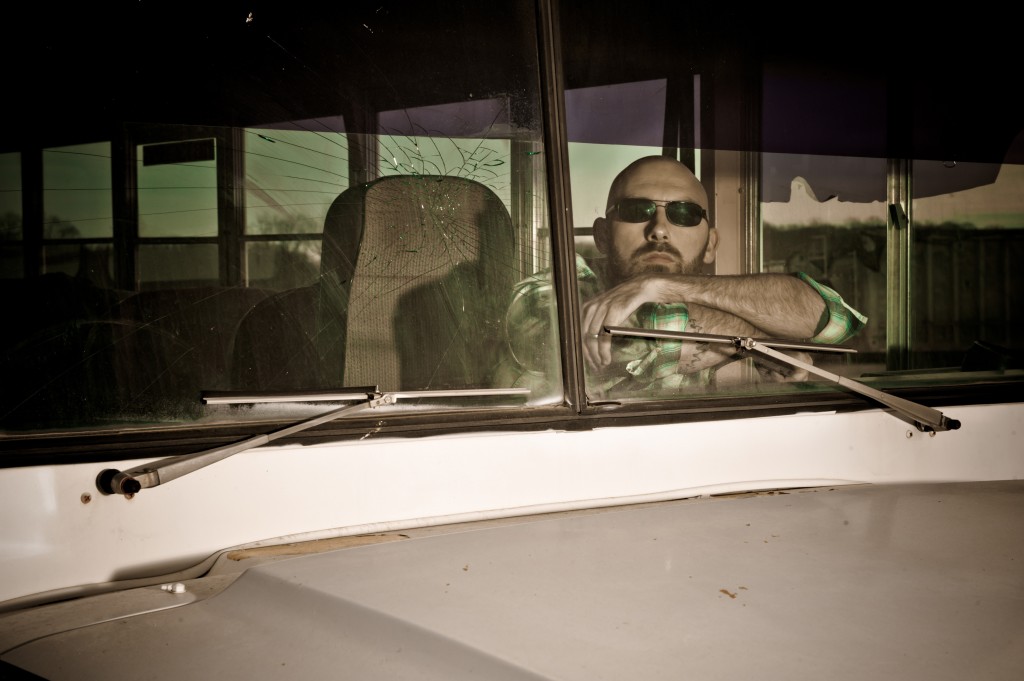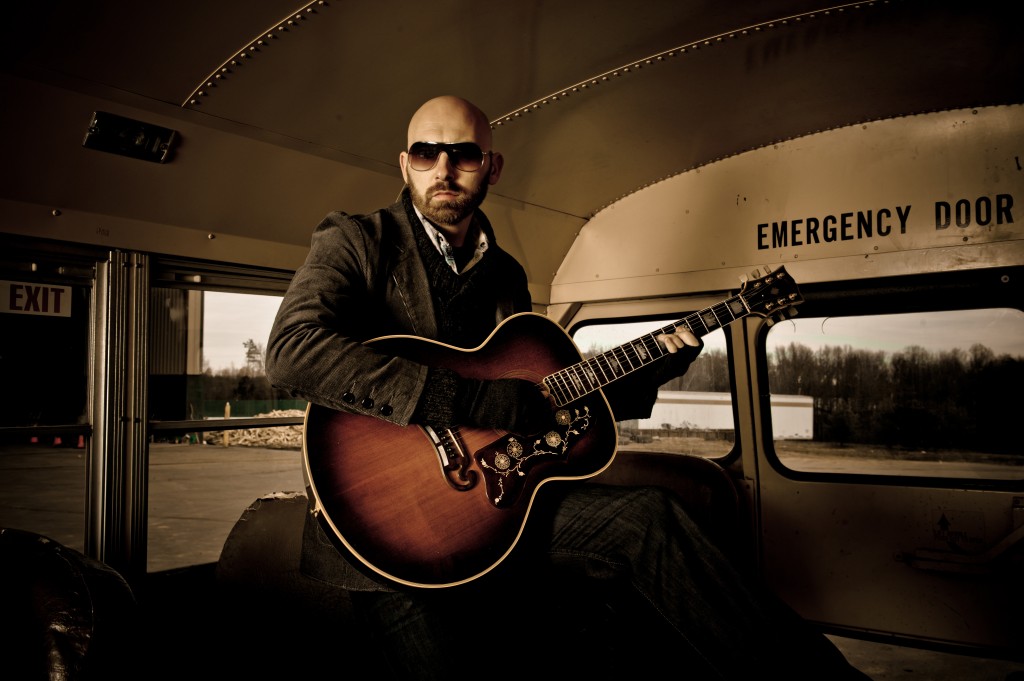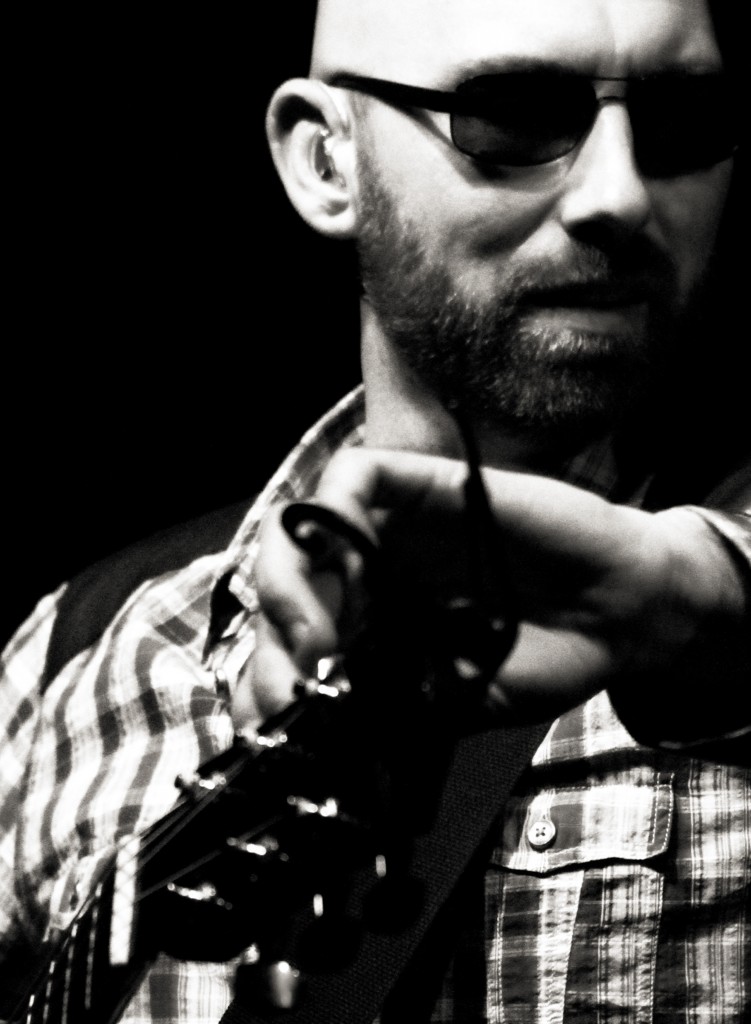Exclusive Q&A: Corey Smith Blazes His Own Path
posted in: Country • Exclusive Interviews • Features
 If any mention of “DIY” only brings to mind the unintelligible screaming of safety-pinned punks, it might surprise you to hear about the incredible independent success of a country artist like Corey Smith. On the strength of his devoted fan base and catchy tunes, Smith has sold over 900,000 digital singles and over 200,000 records independently. Though he released his most recent album The Broken Record on Average Joe’s Entertainment, Smith has stayed true to his independent roots, re-recording past crowd favorites such as “Twenty-One” with new studio polish. We recently caught up with Smith to chat about his grassroots success, his collaboration with producer Rick Beato and how a teaching gig isn’t that different from a music career.
If any mention of “DIY” only brings to mind the unintelligible screaming of safety-pinned punks, it might surprise you to hear about the incredible independent success of a country artist like Corey Smith. On the strength of his devoted fan base and catchy tunes, Smith has sold over 900,000 digital singles and over 200,000 records independently. Though he released his most recent album The Broken Record on Average Joe’s Entertainment, Smith has stayed true to his independent roots, re-recording past crowd favorites such as “Twenty-One” with new studio polish. We recently caught up with Smith to chat about his grassroots success, his collaboration with producer Rick Beato and how a teaching gig isn’t that different from a music career.
OS: You’ve had an incredible amount of success without any type of record label backing. How did you garner such a loyal grassroots following?
CS: I’ve spent a lot of time thinking about this question over the past few years, and unfortunately I’m still a long ways from answering it. There are many, many tremendously talented artists out there and, for whatever reason, only a few of them are able to break through and gain a substantial fan base. If I knew the secret formula, I’d be able to make a fortune writing books, teaching classes or running my own record label.

There was a time when I thought I had the answers, when I thought I understood what was going on, but experience has proven me wrong time and time again. Fans aren’t a product of just the songwriting or just heavy touring or just social media or just file sharing. They are a product of all those things and more.
All I know is I love writing songs. I love recording them. I love performing them. I can’t imagine my life without music in it, without art in it. Like breathing or eating or drinking, it’s become a part of who I am and ultimately, the joy I get from the process of creating is the only true measure of my success.
Am I happy I have a fan base? Truly. Do I know how it came to happen? Not really. But I thank God that it did.
OS: The Wall Street Journal recognized both you and OK Go as artists who have had phenomenal independent success. How do you think genre plays into success as an independent artist?
CS: Being independent allows an artist to be anti-genre in many ways. It makes possible a degree of creative freedom that isn’t feasible when a label is predominantly concerned with radio airplay. When artists know that radio isn’t in the cards for a particular recording, then they can do whatever they think sounds cool. That’s when real innovation occurs. That’s when boundaries get blurred.
My music definitely leans more towards mainstream country than most indie artists. That has made me kind of an oddball I suppose. However, it speaks to how far technology has pushed out the edges of the underground. The alternative, punk, DIY, anti-establishment ethos has spread deep into the heartland now. Even country music hasn’t been spared. “Free at last. Free at last.”
OS: Your new album has seventeen tracks. That’s a lot for a single album! What made you want to include them all?
CS: Simple. It took seventeen tracks to convey the message I wanted to convey. Let’s face it. The reason most albums are limited to ten-twelve tracks has more to do with economics than it does to art. It’s a natural result of the way royalties are paid out. I’m just glad I don’t have to worry too much about that kind of stuff. I just wanted to make a record I could live with, regardless of how many tracks it had.
OS: On the new album you worked with producer Rick Beato, who has also produced Shinedown and Needtobreathe. How did this collaboration affect the older material that you included on the record?
CS: When I made my first few albums, I was on a shoestring budget. I didn’t have money (time) to cut take after take after take until I got the “perfect” one. I had to settle a lot. I had to do the best with what I had. That meant accepting pitchy or nasally vocals, out-of-pocket guitar parts, sparse instrumentation and less-than-dynamic performances. It also required using digital makeup and overdubbing to fix mistakes and fabricate performances.
after take after take until I got the “perfect” one. I had to settle a lot. I had to do the best with what I had. That meant accepting pitchy or nasally vocals, out-of-pocket guitar parts, sparse instrumentation and less-than-dynamic performances. It also required using digital makeup and overdubbing to fix mistakes and fabricate performances.
One of the goals of this project was to give some of my most compelling older material the production treatment it deserved. That meant demanding great performances from the ensemble. That’s where Rick was most valuable. He pushed us to our limits, making sure we had the right takes before moving on to the next song, giving direction when we were stuck and letting us do our thing when we were in a groove.
Also, he is a phenomenal guitar player with a real sensibility for drama. He may not admit it, but he laid down some parts that took a few tracks to a different level. Of course, it is all tasty, subtle, tailored to the song and cautiously colorful.
Lastly, he was real stickler for drum sounds. He made sure to retune the heads to the key of every song. Since he has perfect pitch, it wasn’t that hard for him.
OS: The short track Hey Corey¦ is comprised of what sounds like hundreds of overlapping voices telling you what your record needs. Is this based on actual unsolicited advice from others?
CS: Actually, it’s not hundreds of voices, only a few dozen, but I’m happy it sounds that way. We worked hard on layering them and getting the timing right so that the track built naturally into a cacophony.
The short answer is “no”. I just wanted to convey the types of pressures that artists face when navigating the tension between art and commerce. We have to make difficult choices. Do I do what others expect me to do or do I do what I want to do? That’s the question. It’s pretty easy to figure out what people want to hear, what they like and what they buy. All we have to do is look at the chart. It’s certainly tempting sometimes to do something that I know will sell as opposed to trying something new that may not sell. It takes courage to be innovative, to try something different.
The track is mostly me imagining the type of advice a corporate record executive might give. I wonder how far off I was.
OS: Like music, teaching is a type of performance in front of others. Do your experiences as a former high school teacher influence any part of your live performance?
 CS: Certainly. I think my experience as a teacher influences every part of my live performance. Teaching is not an occupation one can simply pursue from nine to five. A teacher is always a teacher, on call 24/7. Like being an artist, it’s an ethos, a philosophy, a way of looking at the world, a way of living.
CS: Certainly. I think my experience as a teacher influences every part of my live performance. Teaching is not an occupation one can simply pursue from nine to five. A teacher is always a teacher, on call 24/7. Like being an artist, it’s an ethos, a philosophy, a way of looking at the world, a way of living.
What I remember most from the classroom is the sense of responsibility, the idea that the kids in front of me were under my care, my supervision. Parents entrusted me not just to teach them, but to keep them safe, to inspire them, to guide them. That’s heavy stuff, especially for a young person just out of college.
I have a similar sense of duty when I walk on stage. I look out at the crowd and realize they have taken time out of their lives to share with me and I have a responsibility to them. It’s not a mandated responsibility like that of a teacher, but it’s similar in that it’s born of the same desire to make the world a better place, to bring people together instead of dividing them, to lift them up instead of tearing them down, to make them happy. I want to pull them in however I can so I can share with them the spark of joy I get from creating these songs. That’s what it’s all about. Sharing.
Check out Corey Smith’s fall tour dates!
